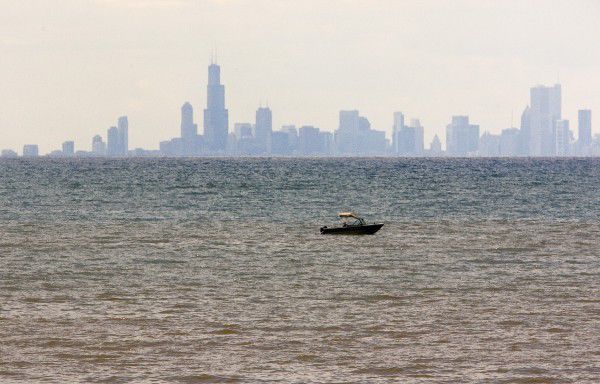Invasive Species Threatening Great Lakes
The Great Lakes are now home to some bad neighbors, and they are creating danger to popular sites.

Lake Michigan has experienced may invasive species in the past few decades.
The Great Lakes have always been a popular vacation spot. Many have flocked to the lakes to swim and fish. However, an undercurrent is showing new dangers. Below the surface, an environmental catastrophe two hundred years in the making is beginning to surface.
These lakes have been through a lot. From the effects of urbanization to global trade, it is notable of how much abuse these waters have gone through. The Great Lakes are said to be more like inland seas, due to them holding about twenty percent of the earth’s fresh water. The lakes were isolated from the major seas until canals and seaways were made for international trade, bringing in freighters from around the world. The ships act like syringes, injecting pollution into these lakes.
Over two hundred nonnative species are inhabiting these lakes as a result of human activity. Species like alewives, sea lampreys, zebra mussels and quagga mussels have ruined the food web. Climate change is also a factor into this including toxic algal blooms and extreme fluctuations in the water levels due to climate change.
Despite all the bad news, there is a glimmer of hope. Native whitefish and trout are returning back to the lakes and regaining a foothold creating a boom for the ecosystem and local economies. Scientists are currently working on ways to keep the invasive Asian Carp out of the waters. The $4.4 million project at The Eagle Marsh Nature Preserve in Fort Wayne was designed to block floodwaters and prevent carp from entering the lakes. This project was recently fully put into place, and has been successful so far.
“This is a great example of how a smaller investment up front can save a whole lot of money and heartache after the fact, after damage could have been created,” Cameron Davis, who coordinates Great Lakes policy for the U.S. Environmental Protection Agency, told the Fort Wayne Journal Gazette.
Progress is still being made, but scientists hope to be able to fully blockade any non-native species from overpopulating the lakes, keeping them safe and enjoyable for all.










